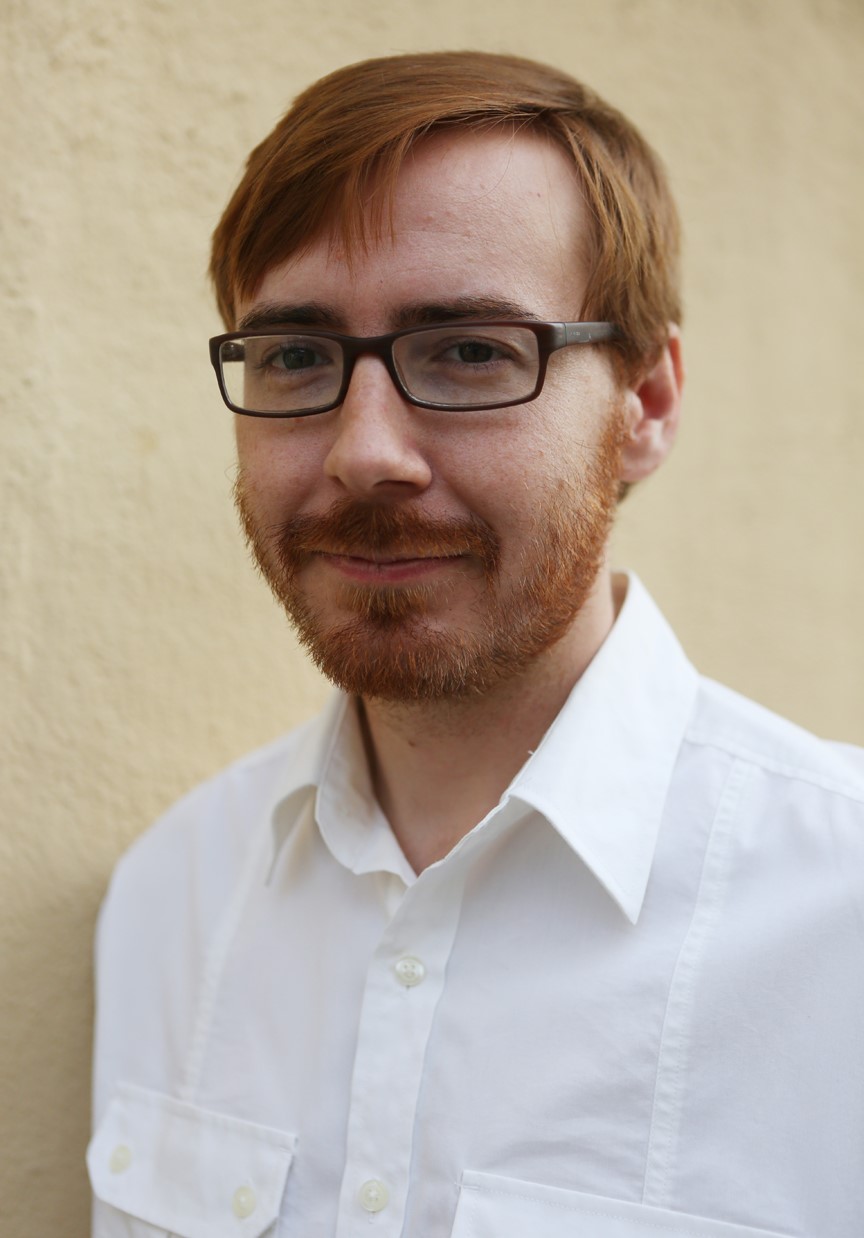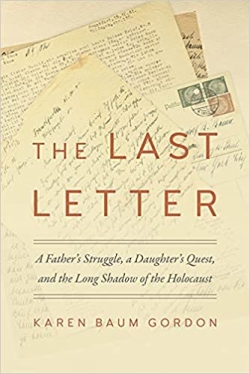Children of Holocaust survivors, also known by many as the "Second Generation," are now in their 60s and 70s. Many of them are grappling with this legacy as their parents reach the end of their lives.
Author Karen Baum Gordon's father, Rudy Baum, who fled Nazi Germany, was an enthusiastic volunteer at the Dallas Holocaust and Human Rights Museum, an honored speaker at events held in Germany, and an active member of his local synagogue. But the depths of his wartime trauma remained unknown to his family until the day Rudy inexplicably attempted suicide at the age of 86.
Baum Gordon's attempts to unravel what led to her father's actions are detailed in her new memoir, The Last Letter: A Father's Struggle, a Daughter's Quest and the Long Shadow of the Holocaust (The University of Tennessee Press / Knoxville).
The first half of the book is dedicated to parsing a treasure trove of letters between her father and her grandparents, Norbert and Julie Baum. When the Nazi regime imposed the restrictive Nuremberg Laws on the nation's Jewish population in the fall of 1935, it became clear that, as Rudy put it, "there was no future for any Jews in Germany. His sister, Gretel, emigrated to Palestine, and a year later, with the help of a loan taken out by his parents, 21-year-old Rudy was able to leave for New York. From 1936 to the end of their correspondence in 1941, the almost weekly letters between Rudy and his "Mutti" (mother) seemed to be one of the few lights in his parents lives as their situation in Germany grew more desperate.
Baum Gordon employs these letters to reconstruct her grandparents' prewar existence in Frankfurt, Germany with the precision of a forensic scientist. As the Baums' circumstances change and they relocate to a series of less expensive apartments, every room is detailed, from the number of leather upholstered chairs in the dining area, to the location of an original Max Bachmann oil painting. Interspersed with descriptions of their leisure activities, including menus of meals they enjoyed with friends, is a chronicle of the ever more draconian laws introduced by the Third Reich to impoverish and terrorize the Jewish population.
Julie Baum's letters vacillate between daily observations to expressions of despair and yearning. It's clear she missed her son terribly, even as she worries about his progress in America and envies his freedom there. Gretel and Rudy send their parents an expensive radio as a wedding anniversary present, something that brings them hours of joy until it is confiscated by the German authorities. The author acts mainly as a historian here, rarely editorializing; occasionally though, she raises the question: Why don't they just leave?
Julie takes a vacation to Switzerland and Norbert travels to Luxembourg for work. Some of their friends even visit their children in America and then return to Germany. By the time the Baums realize how dire their situation has become, the cost of obtaining a visa and the Roosevelt administration's resistance to admitting European Jews make escape a much more difficult proposition.
Rudy is still finding his footing in America and doesn't have the means or contacts to help his parents get out of Germany. In October of 1941, the correspondences abruptly end. A year later, Rudy learns of his parents' death, though not how they died. He enlists in the U.S. Army. When his unit liberates Frankfurt, he visits his old apartment and now-desecrated synagogue. He helps spearhead the liberation of Buchenwald, discovering the atrocities firsthand, seeing the survivors, the "walking dead" as they called them, as cadavers sheathed in tattered garments. Years later, Baum Gordon finds her father's souvenirs from those years, such as a cat-o-nine-tails whip used to torture the prisoners stashed away in her father's trunk.
The author wonders if seeing the horrors of the Holocaust firsthand filled in the gaps in her father's knowledge in ways that tormented him even further. A substantial number of letters between Rudy and his mother are missing in the years just before they disappeared, years when Baum Gordon suspects Julie and Norbert probably begged their son for help. When asking Rudy about these years, her characteristically verbose father replies over and over, "I don't know." Does he not know, not want to know, or is the extent of his pain unknowable even to himself?
In the later parts of the book, Karen Baum Gordon herself becomes the subject. Like a bloodhound, she tracks down every aspect of her grandparents' lives in Frankfurt, visiting the apartments they lived in, tracing their deportation, setting foot in the Polish ghetto where they were eventually confined.
Baum Gordon shoulders the pain that tormented her father, attempting to fill in every crack, every missing detail. She brings her sons with her on some of her fact-gathering missions, imparting this historical legacy onto them, ensuring they will remember. What remains unclear, even at the conclusion of The Last Letter, is whether this knowledge is enough to heal her inter-generational wound.
On this Yom HaShoah, it is important to honor not just the victims, but their descendants, who carry their pain, and who still seek to understand and find ways to live with their inherited trauma.


